Slug
epilepsy-basics
Video
Category
Epilepsy
Excerpt
Epilepsy causes unpredictable seizures and can also lead to other health complications. Many people picture seizures as occurring within the context of epilepsy, but it is important to remember that not all seizures are caused by epilepsy. The purpose of this article is to provide a basic understanding of epilepsy, what causes it, and how to manage it.
Authors
Tags
Featured
Featured
Ready to Publish
Ready to Publish
Publish Date
Aug 8, 2022
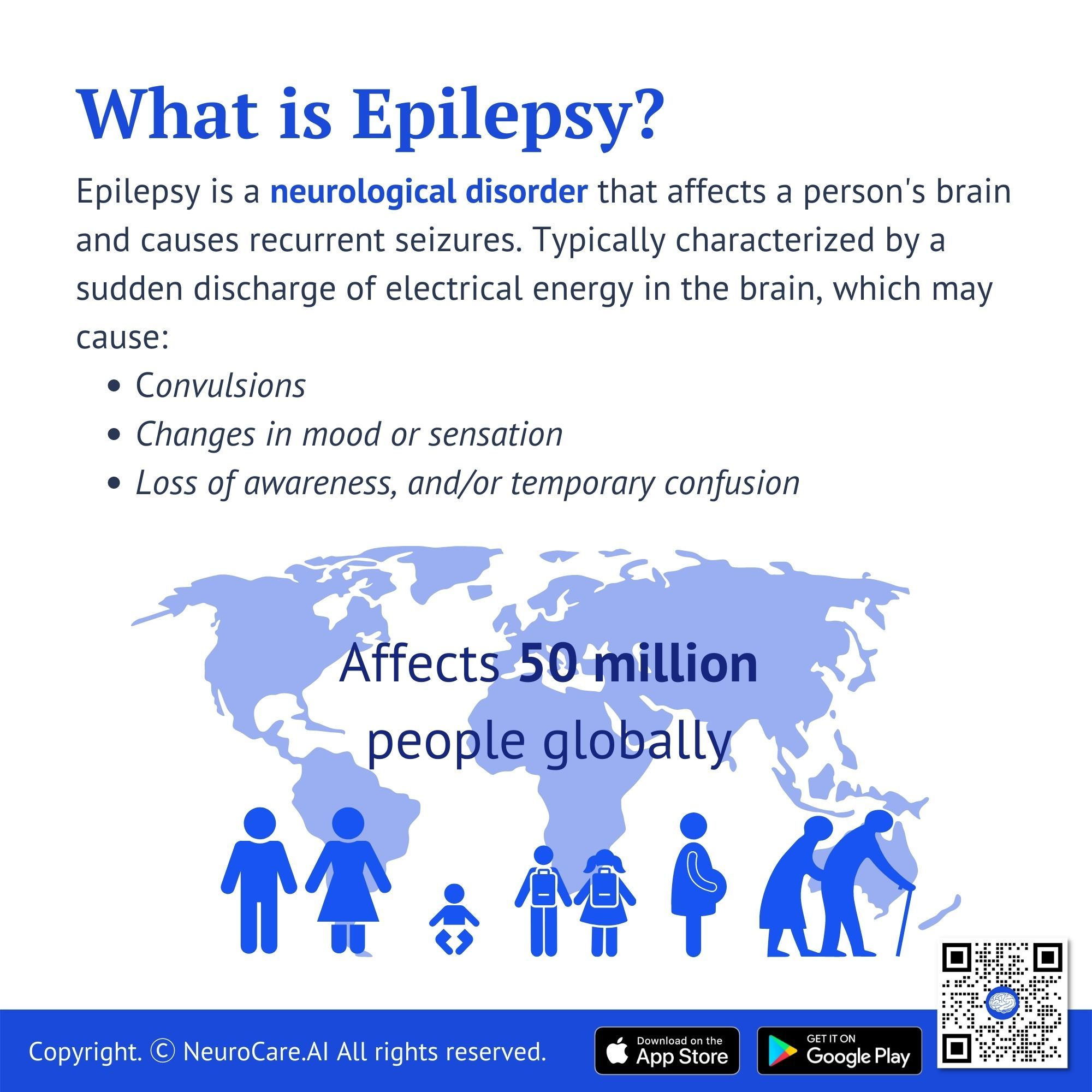
Introduction
Epilepsy is a neurological disorder that affects a person's brain and causes recurrent seizures. They are typically characterized by a sudden discharge of electrical energy in the brain, which may cause convulsions, changes in mood or sensation, loss of awareness, and/or temporary confusion. It's important to note that there is currently no single symptom of epilepsy as it can manifest differently for different people.
Epilepsy is one of the most common neurological disorders in the world, affecting 50 million people globally. The cause of epilepsy can be a chemical imbalance in your brain or an injury.
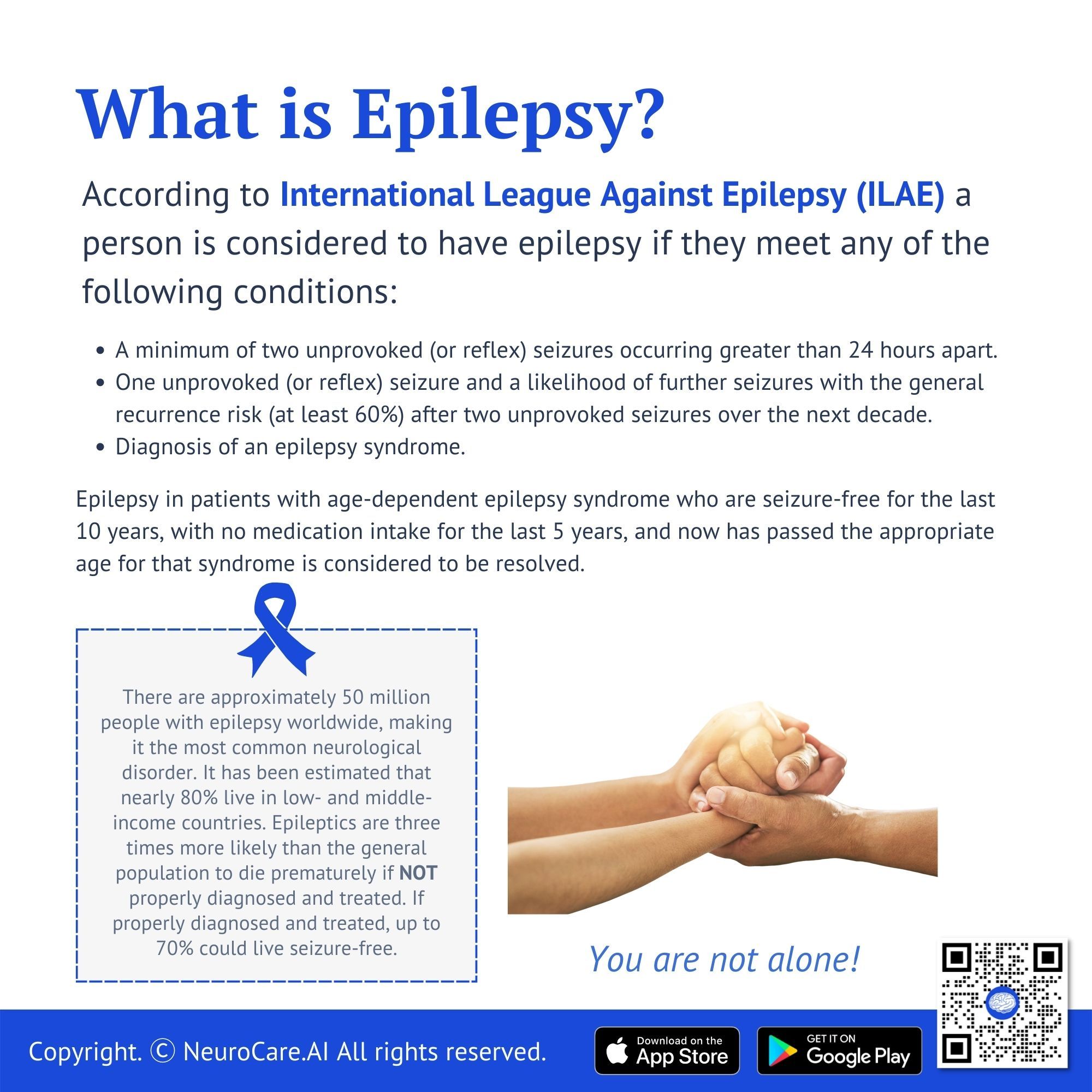
Defining Epilepsy
According to International League Against Epilepsy (ILAE), a person is considered to have epilepsy if they meet any of the following conditions:
- A minimum of two unprovoked (or reflex) seizures occur greater than 24 hours apart.
- One unprovoked (or reflex) seizure and a likelihood of further seizures with the general recurrence risk (at least 60%) after two unprovoked seizures over the next decade.
- Diagnosis of an epilepsy syndrome
Epilepsy in patients with age-dependent epilepsy syndrome who are seizure-free for the last 10 years, with no medication intake for the last 5 years, and now has passed the appropriate age for that syndrome is considered to be resolved.
You are not alone!
There are approximately 50 million people with epilepsy worldwide, making it the most common neurological disorder. It has been estimated that nearly 80% live in low- and middle-income countries. Epileptics are three times more likely than the general population to die prematurely if NOT properly diagnosed and treated. If properly diagnosed and treated, up to 70% could live seizure-free.
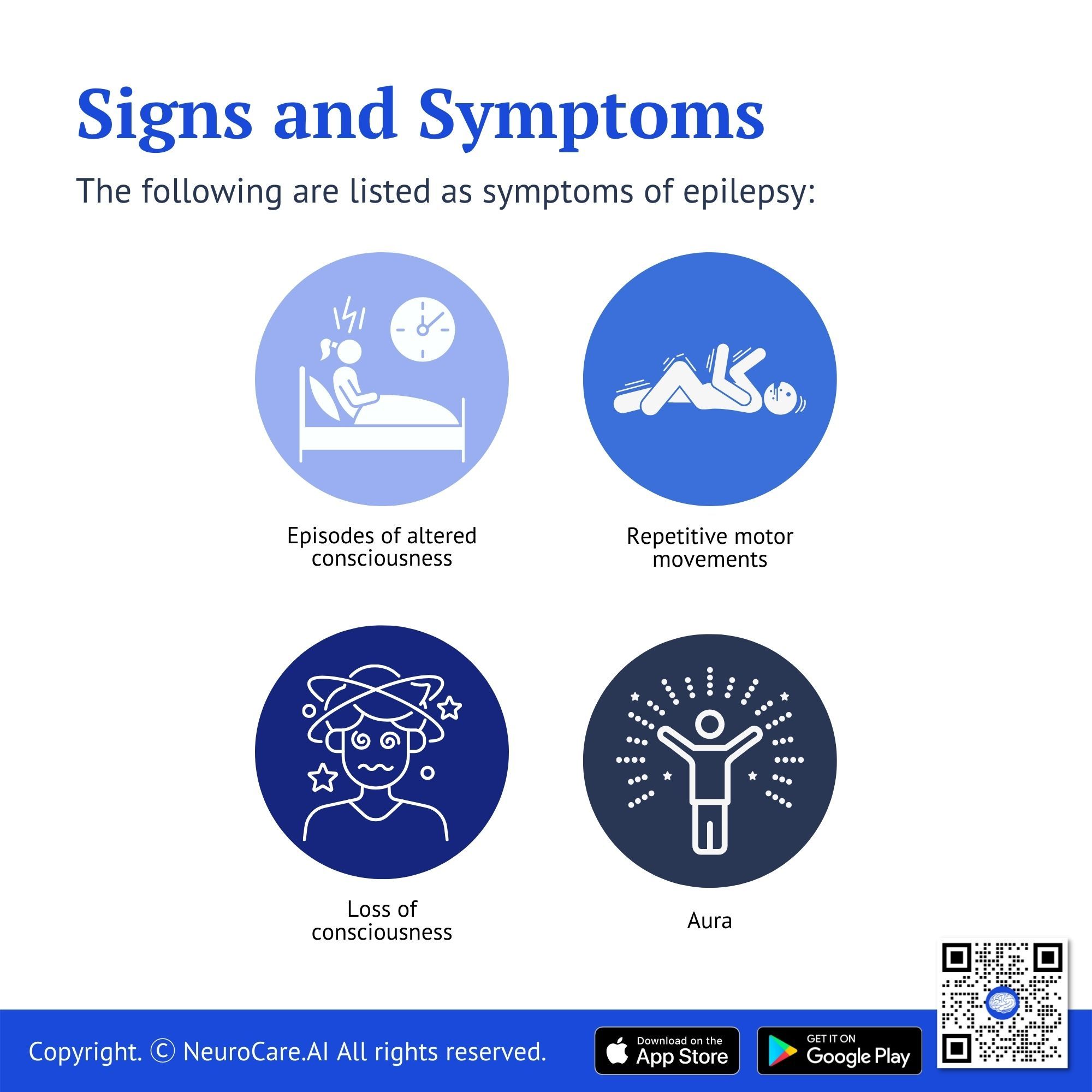
Signs and Symptoms of Epilepsy
People with epilepsy may experience tonic-clonic or grand-mal seizures, which often include passing out, stiffness in the entire body (head to toe) followed by a series of jerking movements. Some people with other types of seizures may experience less obvious symptoms, such as shaking in one arm or face. Others may suddenly stop responding and stare for a few seconds.
The following are listed as symptoms of epilepsy:
- uncontrollable and recurrent seizures,
- episodes of altered consciousness, such as confusion, drowsiness, or loss of awareness,
- repetitive motor movements, including jerking of the limbs, unusual postures, chewing, or other repetitive movements,
- auras - sensory disturbances that warn of an impending seizure, such as a strange smell or an odd feeling in the body, and
- rarely, Loss of consciousness.
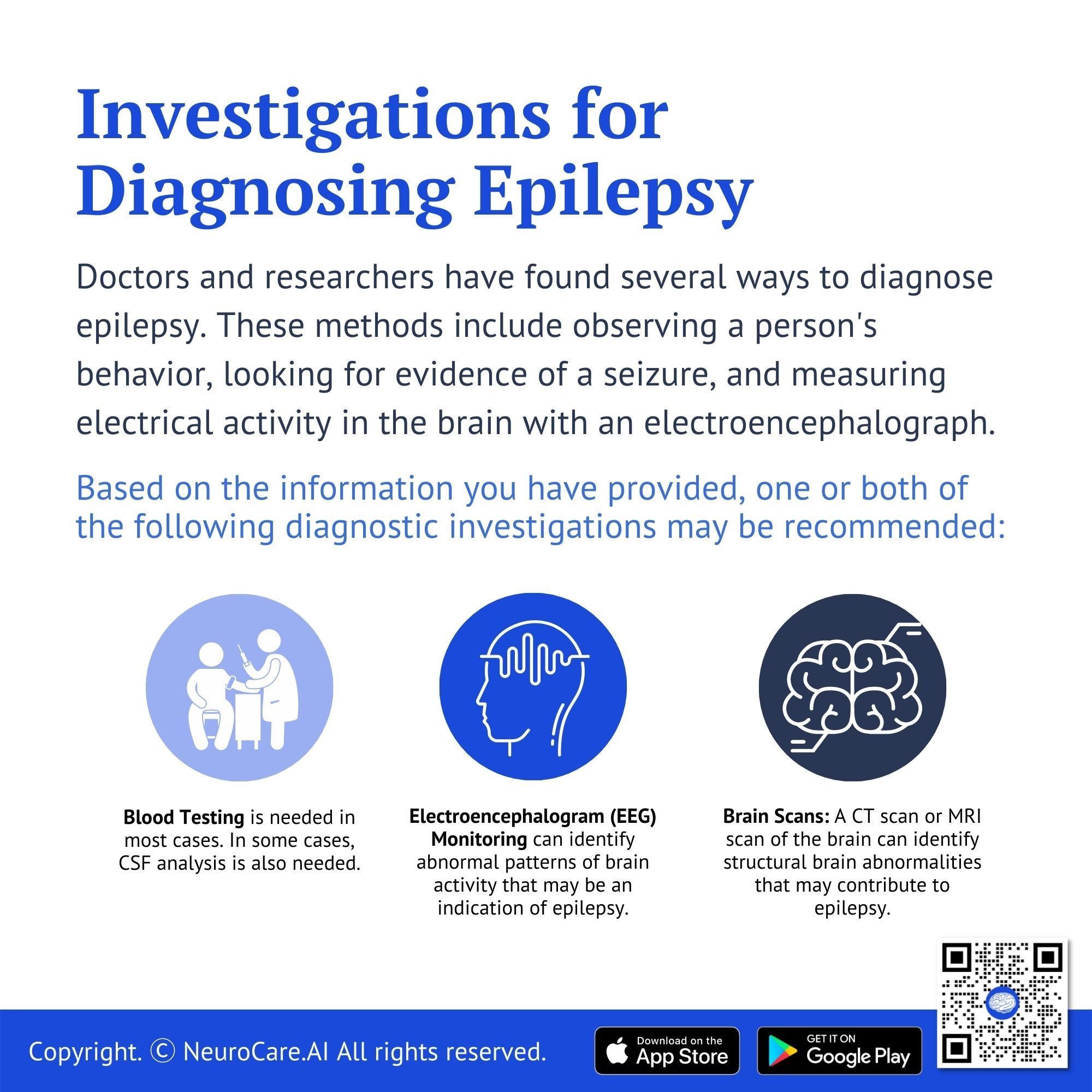
Investigations for Diagnosing Epilepsy
Doctors and researchers use several techniques to diagnose epilepsy. Typically, multiple investigational techniques are used to diagnose epilepsy. These methods include the following and are adjusted for each individual according to their specific needs and profile:
- Laboratory Testing
Blood testing is needed in most cases. In some cases, CSF analysis is also needed.
- Electroencephalogram (EEG) Monitoring
A brainwave test called an electroencephalogram or EEG can identify abnormal patterns of brain activity that may be an indication of epilepsy.
- Brain Scans
A CT scan or MRI scan of the brain can identify structural brain abnormalities that may contribute to epilepsy.
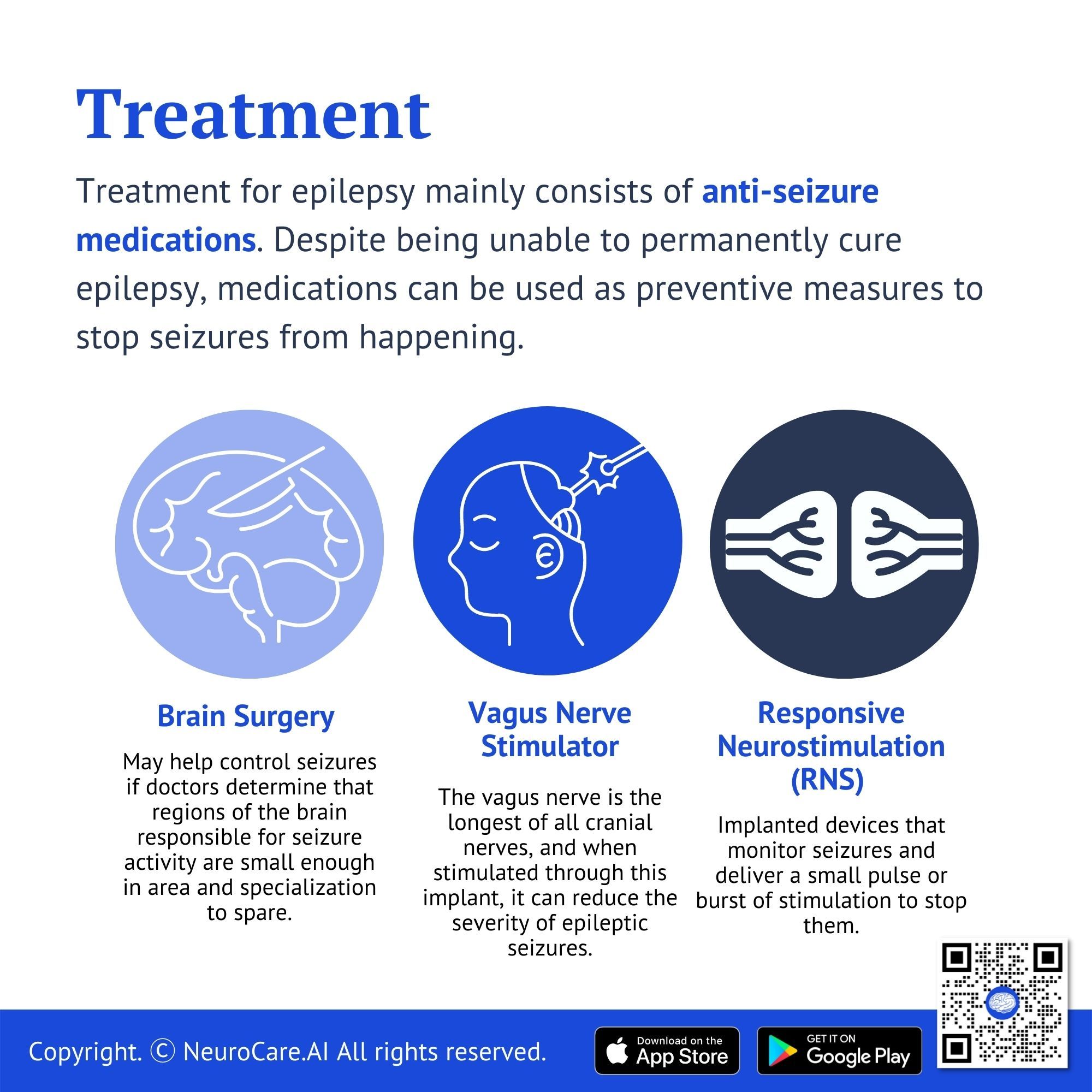
Treatment
Treatment for epilepsy mainly consists of anti-seizure medications. Despite being unable to permanently cure epilepsy, medications can be used as preventive measures to stop seizures from happening. This is beneficial for those who suffer from different types of epileptic disorders, with the right choice of the drug depending on what type you have access to. Some advanced cases of refractory epilepsy will require more advanced even invasive forms of therapies.
- Brain Surgery - may help control seizures if doctors determine that regions of the brain responsible for seizure activity are small enough in area and specialization to spare.
- Vagus Nerve Stimulator - is an electrophysiological device that works by stimulating the vagus nerve, and it's been used for years as a treatment for epilepsy. The vagus nerve is the longest of all cranial nerves, and when stimulated through this implant, it can reduce the severity of epileptic seizures.
- Responsive Neurostimulation (RNS) - are implanted devices that monitor seizures and deliver a small pulse or burst of stimulation to stop them.
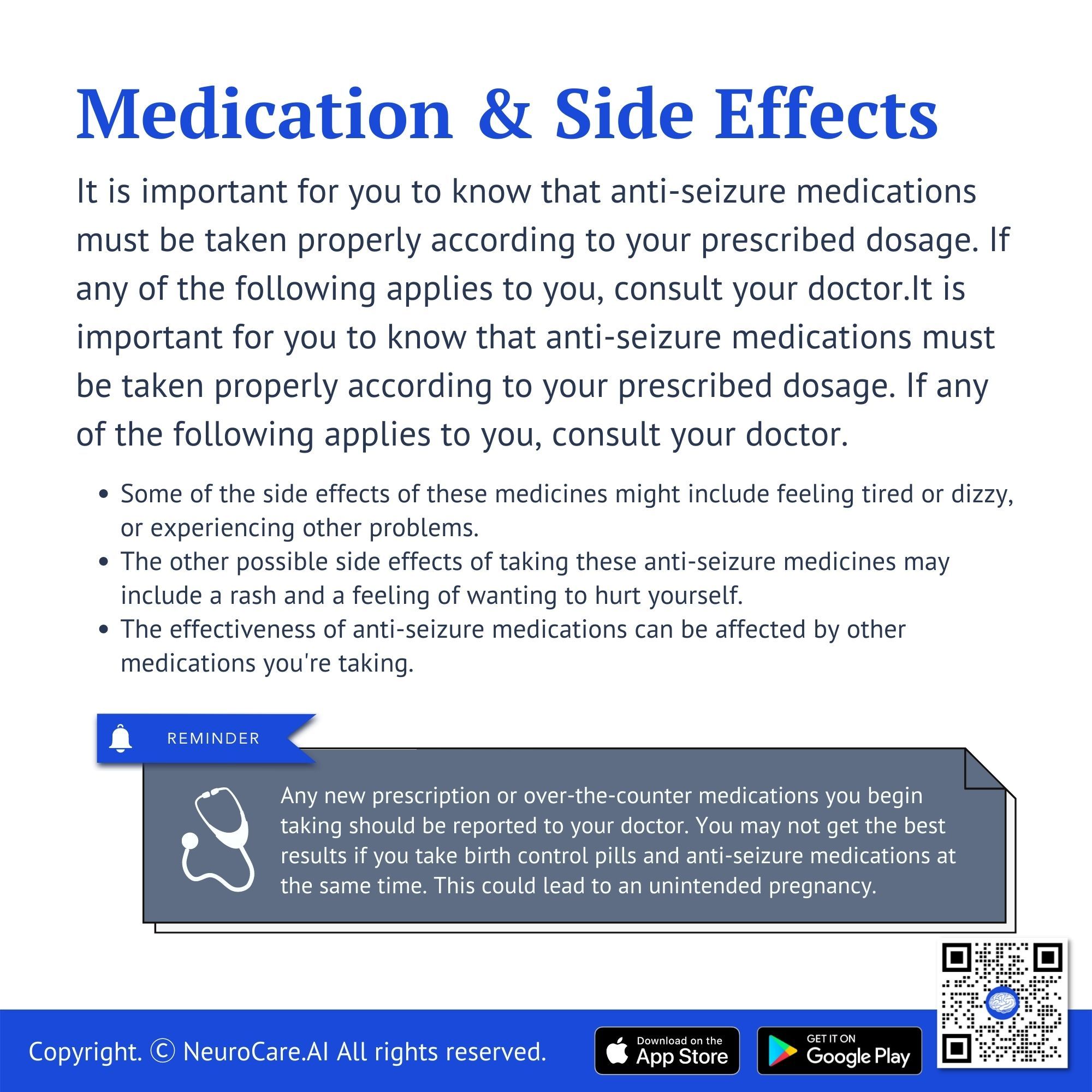
Medications and Side Effects
It is important for you to know that anti-seizure medications must be taken properly according to your prescribed dosage:
- Some of the side effects of these medicines might include feeling tired or dizzy or experiencing other problems. Let your doctor know about any side effects you have so that together you can find a treatment that's suitable for you.
- The other possible side effects of taking these anti-seizure medicines may include a rash and a feeling of wanting to hurt yourself. If you have any of these problems, contact a doctor right away.
- The effectiveness of anti-seizure medications can be affected by other medications you're taking, so it's important to tell your doctor if you use any other medications.
- Notify your doctor about any new prescription or over-the-counter medications that you start taking. For example, birth control pills may not work well if taken together with your anti-seizure medication. This could lead to an unintended pregnancy.
- The frequency of your epileptic seizures varies, which will also influence how often you need to take your medications. But don't ever stop taking them, even if it's been a while since the last seizure, without consulting with your doctor first.
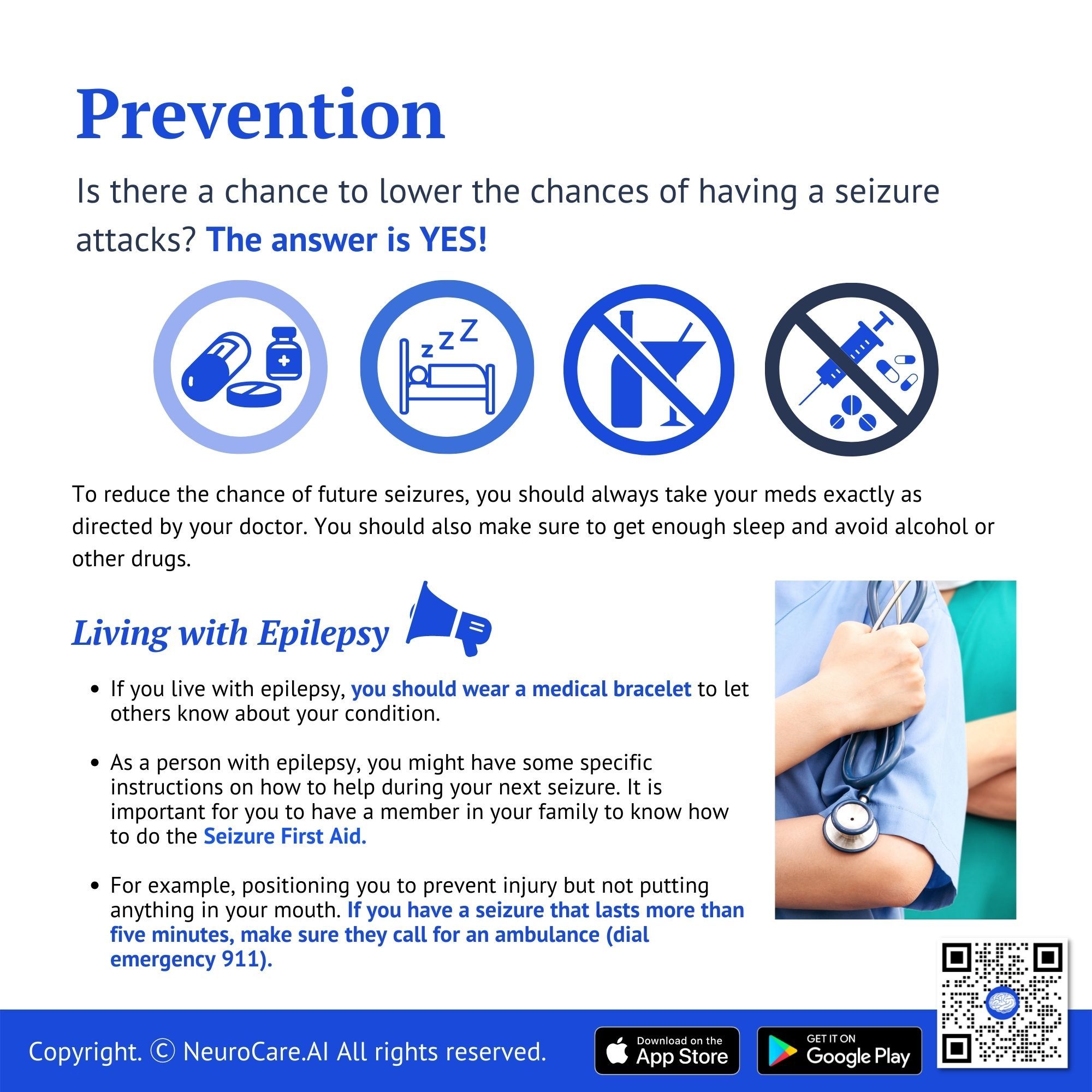
Prevention
Lowering the Chances of having seizure attacks
Is there a chance to lower the chances of having a seizure attack? The answer is YES! To reduce the chance of future seizures, you should always take your meds exactly as directed by your doctor. You should also make sure to get enough sleep and avoid alcohol or other drugs.
Living with Epilepsy
- If you live with epilepsy, you should wear a medical bracelet to let others know about your condition.
- As a person with epilepsy, you might have some specific instructions on how to help during your next seizure. It is important for you to have a member of your family know how to do the Seizure First Aid. You can also share these instructions with friends and family so that they know exactly what to do in these moments. For example, positioning yourself to prevent injury but not putting anything in your mouth. If you have a seizure that lasts more than five minutes, make sure they call for an ambulance (dial emergency 911).
DISCLAIMER:
The information in this document is for general educational purposes only. It is not intended to substitute for personalized medical professional advice. NeuroCare.AI makes every effort to provide accurate and timely information, but makes no guarantee in this regard and disclaims responsibility for adverse consequences resulting from its use. For further information, consult a physician and the organization referred to herein.
AizaMD™: Revolutionizing Clinical Documentation
Discover the power of our ambient clinical documentation system, designed to transform clinical encounters into structured SOAP notes with unmatched ease. Experience exceptional value for less than $3 per day—cheaper than your daily coffee!
- Save Time: Free up over 90 minutes daily for each provider.
- Boost Revenue: Increase daily revenue by at least $1,000 per provider.
- Enhance Coding Quality: Our detailed documentation supports superior coding accuracy, ensuring optimal reimbursement.
- Maximize Engagement and Interaction: Dedicate more time to patient care and less to typing, fostering richer and more effective conversations between clinicians and patients
AizaMD™: Automated Radiology Report Generation!
Discover our breakthrough Radiology AI reporting platform built on Ambient AI. It enhances productivity and minimizes fatigue. Benefit from best-in-class accuracy with our automated radiology report generation, all at market-leading pricing.
📈 Efficiency: Cut dictation times by up to 50% (Less words, More report!
🎯 Focus: Keep your eyes on the images, not the keyboard!
💸 Revenue: Boost revenue by at least 20%
📑 Clarity: Patient summary in plain English
_Cover_Photo.png)
_Cover_Photo.png)

